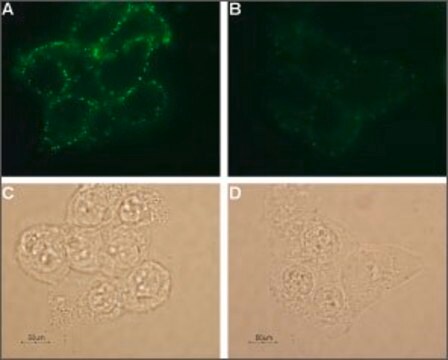687537
Poly(ethylene glycol) dimethacrylate
average MN 6,000, cross-linking reagent polymerization reactions, methacrylate, 1000 ppm 4-methoxyphenol as inhibitor
Synonym(s):
Polyethylene glycol, PEG dimethacrylate
About This Item
Recommended Products
product name
Poly(ethylene glycol) dimethacrylate, average Mn 6,000, contains 1000 ppm 4-methoxyphenol as inhibitor
form
powder
mol wt
average Mn 6,000
contains
1000 ppm 4-methoxyphenol as inhibitor
reaction suitability
reagent type: cross-linking reagent
reaction type: Polymerization Reactions
bp
>200 °C/2 mmHg (lit.)
transition temp
Tm 50.2-53.7 °C
Mw/Mn
<1.2
Ω-end
methacrylate
α-end
methacrylate
polymer architecture
shape: linear
functionality: homobifunctional
storage temp.
−20°C
SMILES string
OCCO.CC(=C)C(O)=O
InChI
1S/C10H14O4/c1-7(2)9(11)13-5-6-14-10(12)8(3)4/h1,3,5-6H2,2,4H3
InChI key
STVZJERGLQHEKB-UHFFFAOYSA-N
Looking for similar products? Visit Product Comparison Guide
Related Categories
Storage Class
11 - Combustible Solids
wgk_germany
WGK 1
Choose from one of the most recent versions:
Already Own This Product?
Find documentation for the products that you have recently purchased in the Document Library.
Customers Also Viewed
Articles
Scaffold patterning with poly(ethylene glycol)-based hydrogels for cell presence in 2D and 3D environments on photoactive substrates.
Highlighting new synthetic modifications of PEG to improve the mechanical properties and degradation of resulting hydrogels in tissue engineering applications.
Hydrogel-based biomaterials for cell delivery and tissue regeneration applications are discussed.
In the past two decades, tissue engineering and regenerative medicine have become important interdisciplinary fields that span biology, chemistry, engineering, and medicine.
Our team of scientists has experience in all areas of research including Life Science, Material Science, Chemical Synthesis, Chromatography, Analytical and many others.
Contact Technical Service






